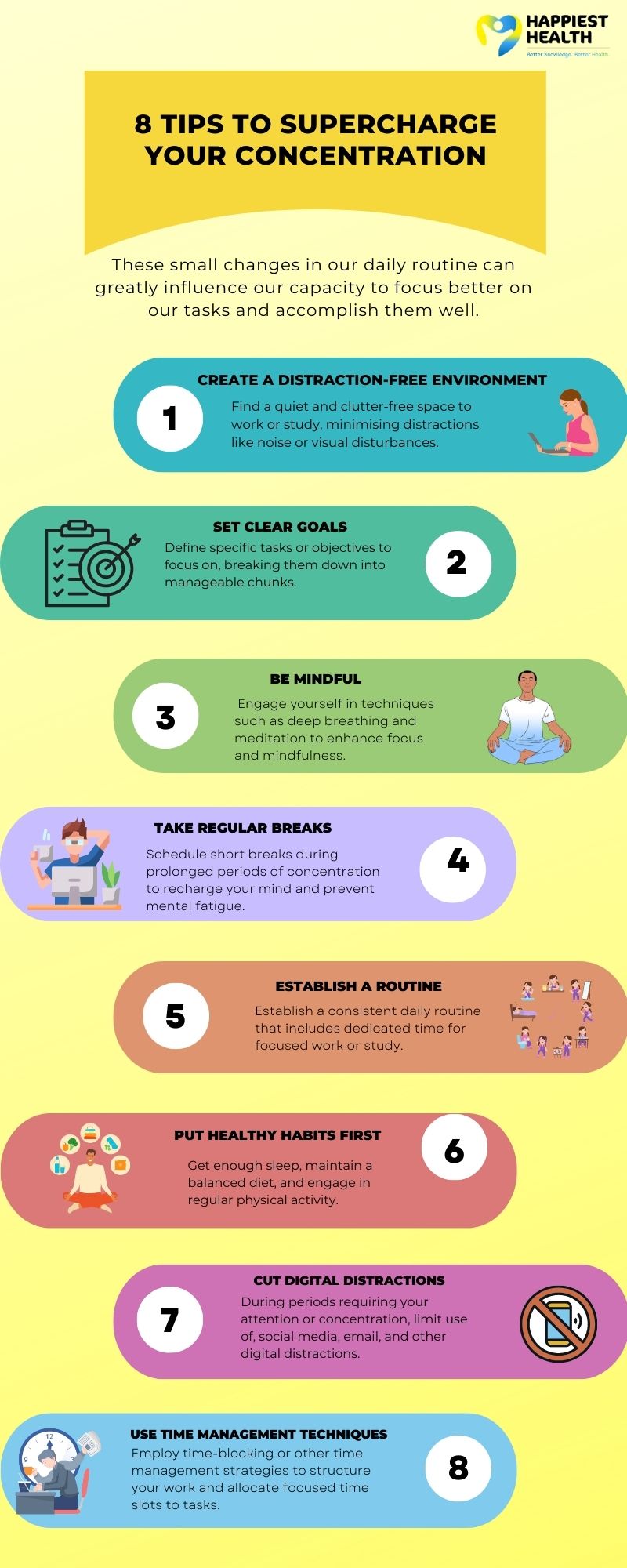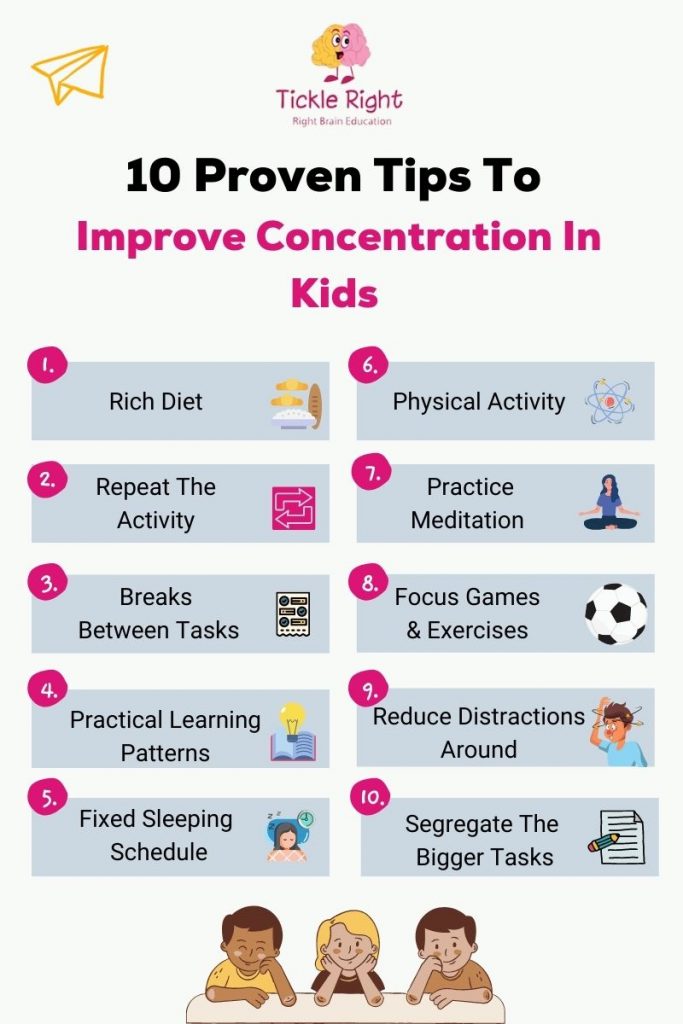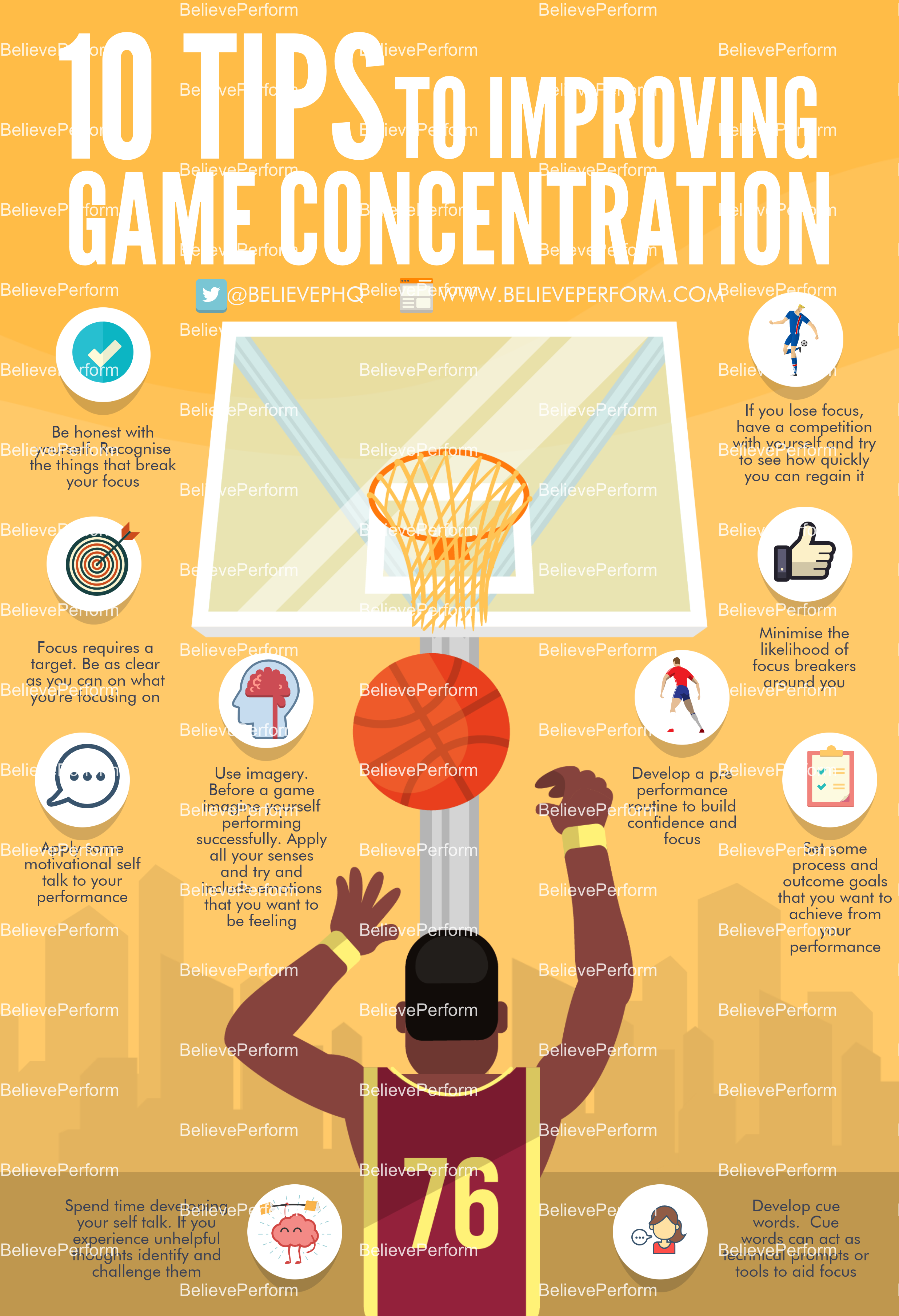Concentration Tips: How to Improve Focus and Boost Productivity
Concentration is a skill that can significantly impact productivity and success in both personal and professional life. Whether you’re studying for an exam, working on a project, or just trying to stay on task throughout the day, maintaining focus is crucial. In this article, we’ll share effective concentration tips to help you stay focused, avoid distractions, and maximize your output.

Why Concentration is Crucial
The ability to focus and concentrate is essential for success. Without concentration, tasks can take longer, mistakes can happen more frequently, and the overall quality of work can decrease. With improved concentration, you can increase your efficiency, produce better results, and achieve your goals faster.
Benefits of Strong Concentration:
-
Increased Efficiency: When you concentrate, you can complete tasks in less time.
-
Higher Quality Work: Focus leads to fewer mistakes and better outcomes.
-
Stress Reduction: A focused mind reduces the stress of unfinished tasks or deadlines.
-
Better Memory: Concentration enhances your ability to retain information and recall it when needed.
Improving concentration is not just about working harder, but working smarter.
1. Create a Distraction-Free Environment
One of the biggest obstacles to concentration is external distractions. To improve your focus, start by creating a distraction-free study or work environment.
How to Minimize Distractions:
-
Turn off notifications: Silence your phone and computer notifications to avoid being interrupted by messages, emails, or social media.
-
Organize your space: Keep your workspace clean and free from clutter to reduce mental distractions.
-
Use noise-cancelling headphones: If you work in a noisy environment, noise-cancelling headphones can help you stay focused.
Why It Works:
By eliminating distractions, you allow your mind to focus solely on the task at hand. This leads to higher productivity and improved results.

2. Practice Mindfulness
Mindfulness is the practice of staying present and fully engaged in the current moment. This is a powerful technique to boost concentration and can be especially helpful during long study or work sessions.
How to Practice Mindfulness:
-
Take deep breaths: Inhale slowly through your nose and exhale through your mouth to clear your mind and relax your body.
-
Focus on your task: Break down your task into smaller, more manageable chunks, and concentrate on one step at a time.
-
Meditate: Regular meditation helps improve your ability to focus for longer periods.
By being mindful, you train your brain to avoid distractions and stay engaged with what you’re doing.
3. Take Regular Breaks
It may seem counterintuitive, but taking breaks can actually improve your concentration. Long periods of work can lead to mental fatigue and reduced focus. By scheduling regular breaks, you give your brain time to recharge.
Tips for Effective Breaks:
-
Use the Pomodoro Technique: Study or work for 25 minutes and then take a 5-minute break. After four sessions, take a longer 15-20 minute break.
-
Get moving: Stand up, stretch, or take a walk during your breaks to increase blood flow and boost energy levels.
-
Avoid screens: Use your break time to step away from screens to give your eyes and mind a rest.
Breaks prevent burnout and help you return to your tasks with renewed focus and energy.

4. Prioritize Your Tasks
Often, people lose concentration because they’re overwhelmed by too many tasks at once. To improve focus, it’s essential to prioritize your tasks and tackle them one at a time.
How to Prioritize:
-
Use the Eisenhower Matrix: Sort your tasks into urgent, important, not urgent, and not important categories.
-
Start with the most important task: Begin your day by working on the task that has the highest priority or deadline.
-
Break tasks into smaller steps: By breaking down large tasks into smaller, manageable pieces, you make them feel less overwhelming.
Prioritizing helps you focus on what truly matters and reduces the stress of juggling multiple tasks at once.
5. Get Enough Sleep
A well-rested mind is crucial for good concentration. Lack of sleep can lead to sluggish thinking, difficulty focusing, and memory problems. Ensuring that you get enough quality sleep is one of the simplest yet most effective concentration tips.
How to Improve Sleep Quality:
-
Establish a sleep routine: Go to bed and wake up at the same time every day to regulate your body’s internal clock.
-
Limit screen time before bed: Avoid using electronic devices for at least 30 minutes before sleeping to help your mind relax.
-
Create a calming environment: Keep your bedroom dark, quiet, and cool to promote restful sleep.
A good night’s sleep will help you wake up feeling refreshed, focused, and ready to tackle your tasks.
6. Stay Hydrated and Eat Well
What you put into your body directly affects your ability to concentrate. Dehydration and poor nutrition can cause sluggishness and make it difficult to stay focused for long periods.
Nutrition Tips for Better Focus:
-
Drink enough water: Aim to drink at least 8 glasses of water a day to stay hydrated and maintain cognitive function.
-
Eat brain-boosting foods: Incorporate foods rich in omega-3 fatty acids (like salmon), antioxidants (like berries), and protein (like eggs) into your diet.
Maintaining a healthy diet and staying hydrated will support brain function, improve concentration, and keep you energized throughout the day.
7. Exercise Regularly
Physical activity has been proven to boost brain function and concentration. Regular exercise increases blood flow to the brain, improves memory, and reduces stress.
Benefits of Exercise for Focus:
-
Increases blood flow: This improves the delivery of oxygen and nutrients to the brain, enhancing cognitive function.
-
Reduces stress and anxiety: Physical activity helps reduce the levels of cortisol (stress hormone) in your body, which in turn can help improve focus.
Even a short walk or light stretching can make a noticeable difference in your ability to concentrate.
FAQs About Improving Concentration
1. How can I improve my concentration if I keep getting distracted by my phone?
One effective strategy is to turn off notifications or use apps that block distractions while you work or study. You can also set your phone in another room to reduce temptation.
2. What are some quick concentration exercises I can do?
Simple concentration exercises include deep breathing, focusing on one object for a few minutes, or practicing mindfulness meditation. These exercises can help center your mind and improve focus.
3. How do I stay concentrated during long study sessions?
Break your study time into smaller blocks (like using the Pomodoro Technique) and take short breaks to avoid mental fatigue. This helps maintain focus and prevents burnout.
4. How does exercise help with concentration?
Exercise increases blood flow to the brain, releasing endorphins that improve mood and mental clarity. Regular physical activity helps boost overall cognitive function, leading to better concentration.
5. How do I avoid distractions from my environment?
Create a quiet and organized workspace, and try to set boundaries with people around you. Consider using noise-cancelling headphones or listening to instrumental music if noise is a problem.
Conclusion
Improving concentration is a gradual process, but with the right strategies, you can significantly enhance your ability to focus. By creating a distraction-free environment, practicing mindfulness, taking regular breaks, prioritizing tasks, getting enough sleep, staying hydrated, and exercising, you can boost your concentration and achieve greater productivity. Keep applying these concentration tips consistently, and you’ll notice improvements in your focus and efficiency over time.









